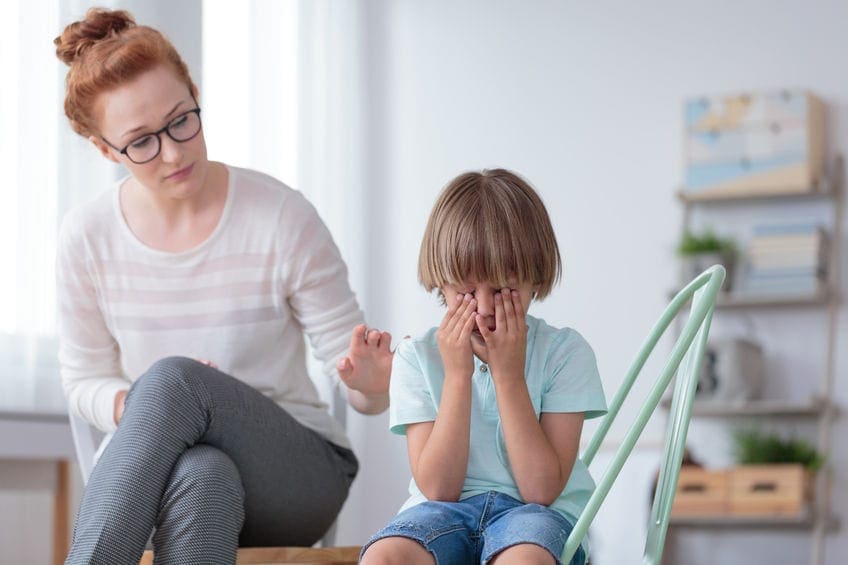The Unspoken Trauma of Adoption

One of the topics that many people neglect to talk about when discussing adoption is the trauma that many, but not all, adopted children experience. A number of children adopted at birth are susceptible to the affects that adoption can have on a child.
According to Paula Thomson in Birth Psychology, “Early pre- and post-natal experiences, including early trauma, are encoded in the implicit memory of the fetus, located in the subcortical and deep limbic regions of the maturing brain. These memories will travel with us into our early days of infancy and beyond and more importantly, these early experiences set our ongoing physiological and psychological regulatory baselines.”
Many children who experience trauma do so while they are still in utero, especially if their biological mother is already preparing to place them for adoption. Many studies have proven that what a mother does, feels, consumes, and experiences have positive or negative effects on her unborn child. Why should we expect anything different for an adopted child?
In fact, Adoptive Families of BC reports:
“…Science is now telling us that if the mother of a growing fetus is experiencing trauma herself, the stress hormones that she releases will flood the baby too. This can result in the child being born hyperreactive and hard to soothe. It’s also safe to say that many expectant mothers considering adoption for their child experience such stress, particularly if they are the victims of violence, have little support or face other extreme stresses.
Some experts believe that even healthy newborns who, after nine months of companionship with their birthmom during her pregnancy, are handed from birth parent to adoptive parent, experience the trauma of that separation.”
In addition to the trauma of being separated from their biological mother, many children who are placed for adoption have also been exposed to drugs and alcohol while in utero, a traumatic experience that may not always result in noticeable physical effects, such as Fetal Alcohol Syndrome. But according to ScienceDaily.com, “Over 1 million babies born annually in the United States are exposed to drugs, alcohol or tobacco while in utero. New research suggests that prenatal exposure to these substances (alone or in combination) may have effects on the baby’s brain structure that persist into adolescence.”
The problem with many of these traumas is that they can be silent. A child may start acting out, having unexplained tantrums, or hurting themselves or others for no known reason. While a child who has physical deformities is easy to diagnose, a child who is dealing with emotional and psychological issues is not as easy to identify.
ConsideringAdoption.com offers these tips to help your child cope with the trauma of adoption:
· “Communicate openly and honestly with your child. Don’t force your child to talk before they are ready, but make adoption a normal topic of conversation and make sure your child knows that the lines of communication are always open. Be emotionally and physically available, and listen whenever your child has something to say.
· Learn as much as you can about your child’s pre-adoption history so you can answer questions as they arise. If it is possible and in the child’s best interests, maintain a relationship with your child’s birth family. Having readily available information and contact with the birth parents can help give your child a better sense of his or her identity and potentially ease feelings of grief and loss.
· Provide a stable, loving home, be consistent and predictable, and develop routines for your child. Children will adjust better in a home where they know what to expect, and older children who have faced past trauma will especially benefit from structure. Allow the child to make age-appropriate choices to help build confidence and gain a sense of control in his or her life. Be patient and flexible as your child makes these adjustments.
· Consult help when you need it. A therapist or behavioral specialist can help you and your child work through difficult post-adoption issues. Seek providers who have experience with adoption and trauma counseling – these professionals may be better able to help you understand your child’s needs and respond more effectively. Beyond traditional therapy and counseling, there are many options for providing mental health support to your child or family, including support groups, camps and social events.”
Of course, children who are adopted through foster care defers to a different conversation than stated above. If your child is exhibiting signs that they are dealing with the effects of trauma, don’t lose hope. There are many resources available now to help you as you work to connect with your child and help them to heal from the trauma that they have experienced. You and your child can work through the trauma together and have a loving and healthy relationship.
